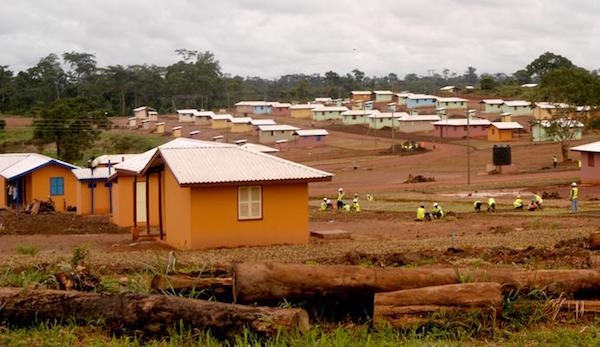A free trade zone is a special economic zone within a district where goods are imported, stored, handled, manufactured and possibly re-configured and re-exported under specific customs regulations and generally without any subjection to customs duties, tax obligations, levies and foreign exchange regulations. Following the Export Processing Zone Act of November 19, 1992, the Federal Government of Nigeria established the Calabar Free Trade Zone, an area north of the port of Calabar, Cross River State, Nigeria in November 2001, as a part of an initial measure to begin trade, and foreign direct investment. There are 27 free trade zones fully operational across Nigeria now with over 500 companies doing business in them, while 12 other free trade zones are currently under construction.
The logic behind the rapid development of free trade zones across Nigeria is lucid: it has been found by economic researchers that free trade zones in the mode of export processing zones contribute to export promotion and expansion in emerging economies especially since the 1960s, while also adding great returns to the overall gross domestic product of the host country. Yet, even with the outsized economic potentials of free trade zones, a latent impediment to their development remains the issue of unaddressed land resettlement compensation rights due to the ancestral landowners of the zones.
In several developed free trade zones all over the country, state governments who promised to provide adequate compensation packages to landowners who have been expropriated from their communal farmlands have reneged on their agreements. For instance, the Lagos State government acquired over 16,000 hectares of land, home to twenty-six villages in its development of the Lekki Free Trade Zone; however, only 750 hectares of land were set aside for the resettlement scheme of the twenty-six communities.
The World Bank’s Land Governance Assessment Framework confirms that, in Nigeria “a large number of land acquisitions occur without prompt and adequate compensation, thus leaving those losing land worse off, with no mechanism for independent appeal even though the land is often not utilized for a public purpose”. This deplorable situation has been ascribed to a number of factors, including corruption, limited capacity and insufficient financing as well as Nigeria’s weak legal framework.
The Extant Legal Position on Resettlement Compensation
Section 43 of the 1999 Constitution guarantees the right of every Nigerian citizen to acquire and own immovable property anywhere in Nigeria while Section 44 (1) (a) of the Constitution provides that no moveable property or any interest in immovable property shall be taken possession of compulsorily except in a manner that requires prompt payment of compensation therefore.
Section 1 of the Land Use Act (1978) entrusts all land in the territory of each State of the Federation to the Governor of that State. While Section 28 of the Act makes it lawful for the Governor to revoke a right of occupancy for overriding public interest for public purposes by the state or the federation. Section 29 of the Act maintains that the holder or occupier of a land shall be entitled to compensation for the value at the date of revocation of their “unexhausted improvements” which shall be paid to the community, the chief of the community or into a fund specified by the Governor for that purpose.
Compensation for unexhausted improvements shall, by Section 29 of the Act, concern the value of the land, or an amount equal to the rent paid by the occupier during the year in which the occupancy was revoked; buildings, installations and improvements done on the land or crops planted on land as the case may be shall be valued through a prescribed method of assessment by an appropriate officer. Section 33 of the Act allows the governor to offer a resettlement in any other place or a reasonable alternative accommodation in lieu of a financial resettlement compensation.
Fixing The Land Resettlement Challenges
Nigeria’s weak legal framework, corruption, limited governmental capacity and insufficient financing have all been identified as the major reasons why the country’s land compensation procedures lags behind that of over 50 countries in the arena of international standards on the valuation of compensation.
Therefore, the Nigerian government should adopt the Resettlement Policy Framework, outlined in May 2024 by the Federal Ministry of Agriculture and Rural Development. This directive requires adequate compensation for persons affected by governmental projects, in line with the Nigerian Land Use Act and the World Bank Environmental and Social Standard (ESS) 5.
The Lagos state government’s payment of ₦38 million as crops’ compensation to 15 traditional families of Ladekin, Igbodu and Molajoye in Epe, Lagos for the acquisition of 500 hectares of land in the community intended for integrated agricultural activities stands as a right precedent in this equitable compensatory direction.
Doyin Olagunju is a legal practitioner, and a fellow of the Ominira Initiative for Economic Advancement.


